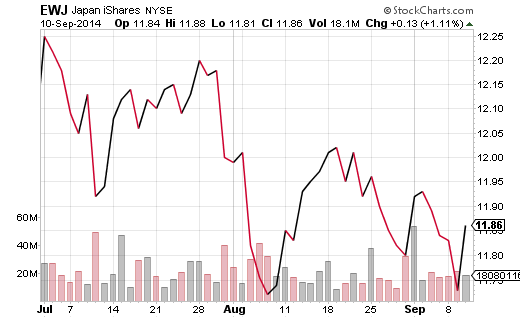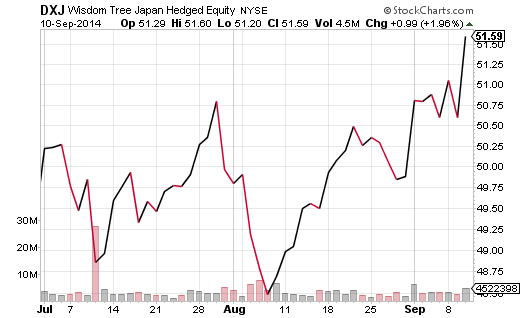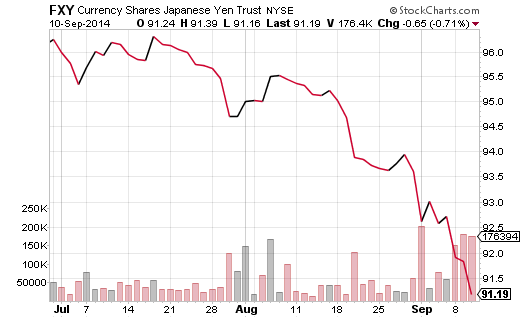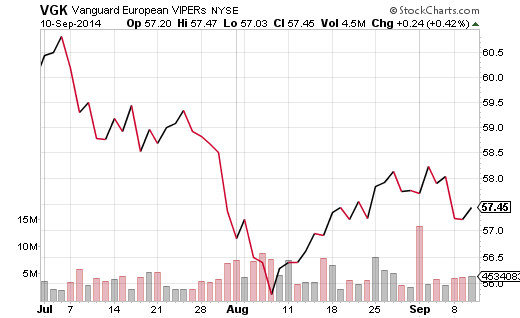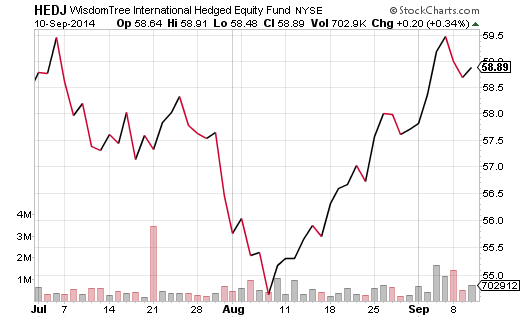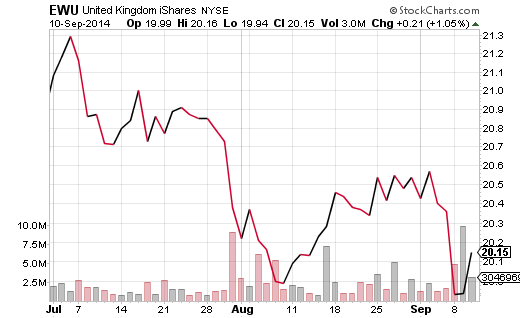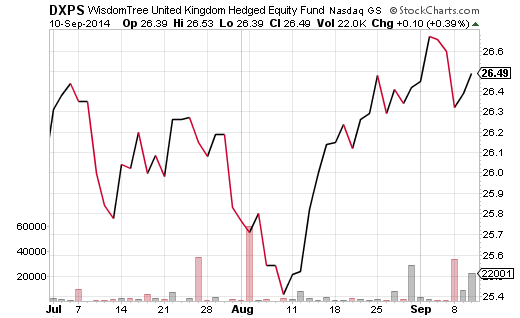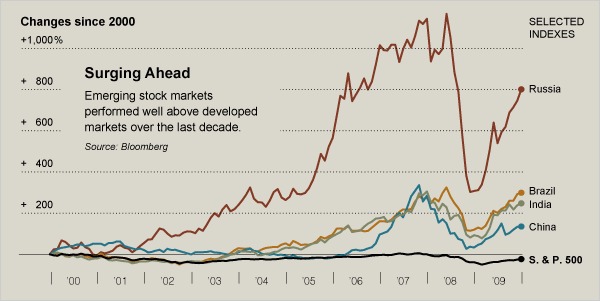The U.S. economy has been growing at an annualized pace of roughly 2% since the current expansion began in June of 2009. Gross Domestic Product (GDP) for the first half of 2014 hovered around a paltry 1%. And while many contend that 2nd-quarter growth at approximately 4% is signaling better times ahead, members of the Federal Reserve are keenly aware of the recovery’s fragility. That is why the central bank continues to maintain a remarkably accommodating policy of zero percent lending rates.
Yet all things in life are relative. Japan’s economy in the 2nd quarter? It shriveled up like a dried apricot, contracting at a pace not seen since last decade’s global meltdown. What’s more, few analysts expect to see any growth in the “land of the rising sun” until 2015. Meanwhile, the most recent data out of Europe exposed region-wide weakness as the economies of Germany and France actually shrank.
The fact that the U.S. stocks continue to outperform most developed world equities is a function of the U.S. economy’s modest success – a function of relativity. Indeed, investors seem content to slip into the least soiled shirt from the dirty hamper. Might there come a time when institutional “movers-n-shakers” will view the premium to own expensive U.S. shares over inexpensive foreign shares as too hefty? Undoubtedly. For the time being, however, ETF enthusiasts who wish to remain globally diversified could opt for a currency hedge.
For example, Japan’s struggles led the Bank of Japan (BOJ) toward the aggressive creation of electronic money for the purpose of buying assets, depressing interest rates and jolting the Japanese economy back to life. Since speculation about the necessity of the emergency-level measures began around July 1, the Japanese yen has depreciated dramatically against the U.S. dollar. The currency effect can best be seen by comparing the most popular ETF for investing in Japanese equities, (NYSE:EWJ), against (NYSE:DXJ). The EWJ found itself down (-1.5%) in the period since July began whereas (NYSE:DXJ) picked up about 4.5%.
Although the 6% discrepancy in performance between the two Japanese ETFs cannot be explained entirely by depreciation in the Japanese yen, the bulk of it can be. Take a look at RYDEX CurrencyShares Japanese Yen (ARCA:FXY) with its -5.2% return in the time period.
It is possible that you have not given the effect of currencies on your holdings a great deal of consideration. You may need to change your thinking. If the U.S. dollar continues to power ahead against the euro, WisdomTree Intl. Hedged Equity Fund (NYSE:HEDJ) will continue to make Vanguard MSCI EU (ARCA:VGK) look like an unwise choice for foreign exposure. Once more we are able to see how -5.7% for Rydex CurrencyShares Euro Currency (NYSE:FXE) adversely affects VGK’s returns in the period (-4.2%), whereas HEDJ eked out a gain (0.8%).
Need more evidence? The United Kingdom may not be part of the euro-zone, but it is certainly affected by international trade and proximity. Moreover, if the Russia-Ukraine conflict is bad for the U.S. and Europe, the United Kingdom hardly escapes unscathed. Top off these concerns with a surprising amount of support within Scotland for an independence movement from the United Kingdom and you’d discover the British pound coughing up 5.1% against the dollar since July 1. Below you can see the disparity between the performance of iShares MSCI UK (ARCA:EWU) at -3.5% and its hedged counterpart, WisdomTree UK Hedged Equity (NASDAQ:DXPS), at 1.8%.
Before you determine that it would be best to sell all of your unhedged foreign holdings and replace them with dollar hedged equity ETFs, recognize that you may need to do some currency legwork. Specifically, there have been plenty of times in the not-so-distant past when foreign currencies obliterated the U.S. dollar. In truth, a significant percentage of the foreign stock and emerging market stock ETF success over U.S. stock ETFs in the ten years from 2000-2009 is attributable to foreign currency gains.
It follows that dollar-hedged stock ownership is beneficial for the moment. Nevertheless, an astute investor will need to pay attention to the possibility that dollar bears reassert themselves down the road.
For instance, the prevailing wisdom today is that the Fed will finish tapering its quantitative easing (QE) program in 2014, and begin hiking rates in the middle of 2015. What if that scenario does not come to fruition? What if scores of multinationals in the U.S. find that the money they have earned in foreign currencies is worth less when converted back to the almighty buck, damaging third quarter profits? What if a long-in-the-tooth U.S. recovery starts to wane in the absence of QE3, and the Fed opts to serve up another round (QE4)? Certainly, there are circumstances that could damage the dollar’s prospects, hinder stock share prices, and make the hedged stock ETF less desirable than the traditional unhedged stock ETFs. Pay attention to currency shifts.

